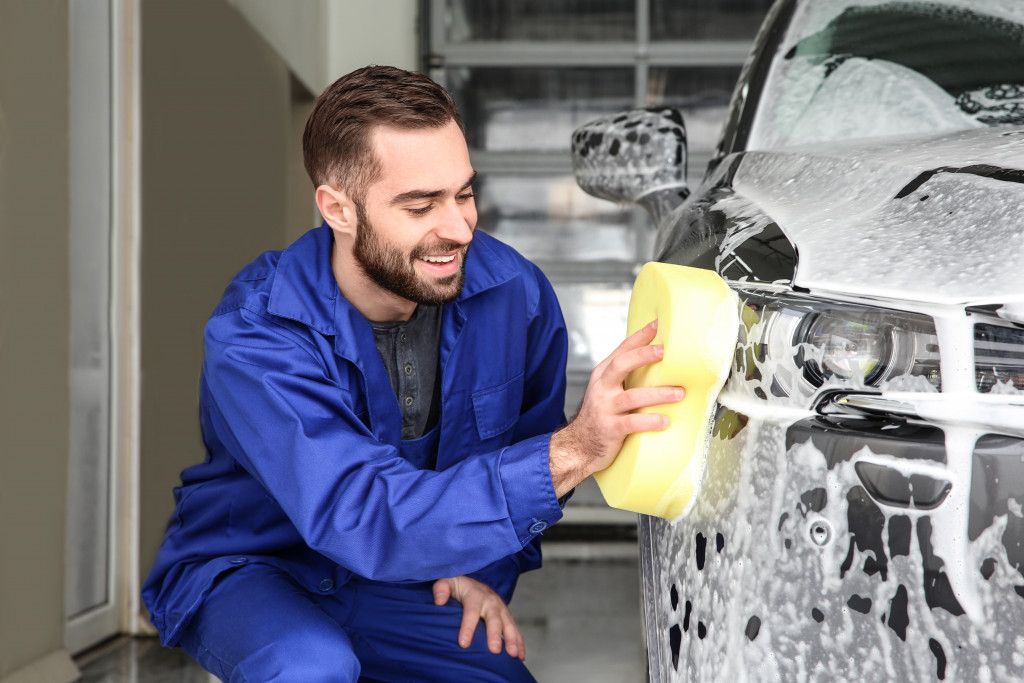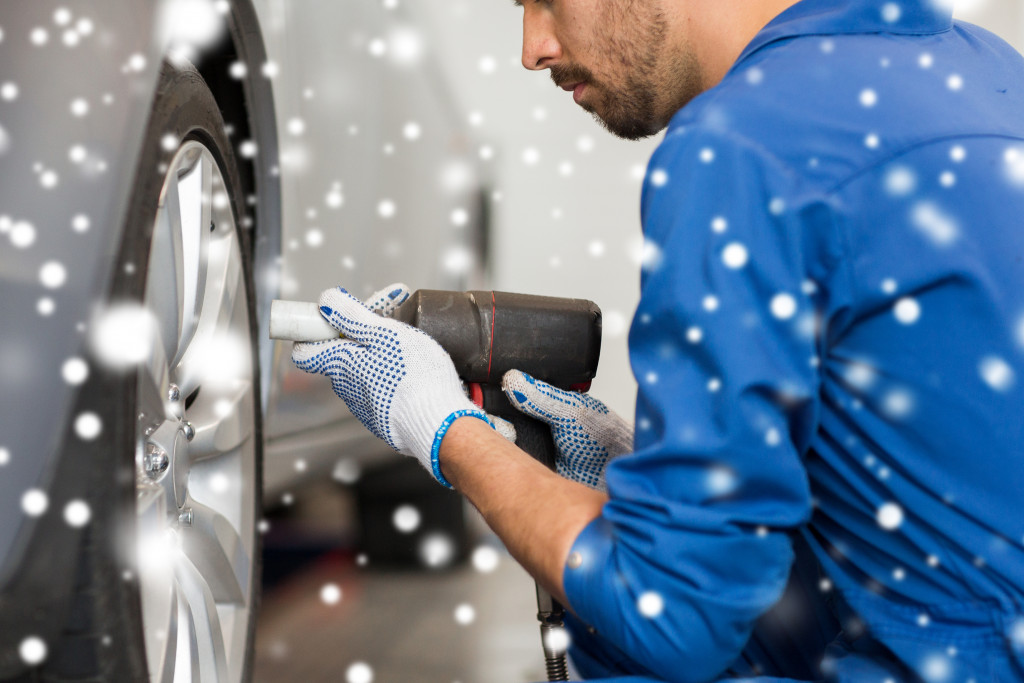- Regular maintenance is essential for the safety of drivers and the longevity of vehicles.
- Tips include regular oil changes, tire pressure checks, brake inspections, battery inspections, vehicle cleaning, keeping records, training drivers, and winterizing vehicles.
- Vehicle cleanings should include the body, seats, and interior with occasional exterior car protection such as vinyl wrapping.
- Proper maintenance helps reduce repair costs and increase the lifespan of commercial vehicles.
- Block heaters should be plugged into vehicles when not in use during extreme winter temperatures.
It can be challenging to maintain commercial vehicles, especially if you don’t know where to start. Regular maintenance can be costly, but it is essential for both the safety of your drivers and the longevity of your vehicles.
Commercial vehicles undergo heavier use than personal vehicles, so keeping them in excellent working condition is necessary. In this post, we will provide you with some tips on how to maintain your commercial vehicles.
Regular Maintenance
Regular maintenance is vital for commercial vehicles, helping to prevent breakdowns and keeping vehicle components from degrading quickly. Here are the basics of regular maintenance:
Regular Oil Change
Oil is the lifeblood of your car’s engine. Regular oil change ensures the engine runs smoothly and prevents overheating. It also helps remove sludge and dirt that might have accumulated in the machine. Failure to change your oil regularly can lead to poor engine performance, loss, or even total engine breakdown.
Tire Pressure Check
The correct tire pressure is critical for effectively performing your car’s suspension and brakes. Also, it ensures a comfortable ride and helps you save fuel. Regular tire pressure checks help prevent accidents, extend the life of your tires, and protect you from costly repairs.
Regular Brake Inspection
The brakes are one of the most critical safety features of your car. Regular brake inspections ensure they are always working correctly and in good condition. It helps identify wear and tear, leaks, or other issues that might compromise your driving safety.
Regular Battery Inspection
Your car’s battery supplies power to start the engine, electrical components, and electronics. A dead battery can leave you stranded, leading to costly towing charges. Regular battery inspection ensures it is always in good condition and helps prevent unexpected battery failure.
Vehicle Cleaning

Road grime, dust, and dirt can cause severe damage to the vehicle’s undercarriage, metal components, and paint. Commercial vehicles need regular cleaning since they are subjected to heavy daily use. Get a pressure washer and clean the undercarriage and exterior of your car every two weeks.
Wash the vehicle’s body, seats, and interior, vacuuming as needed. This will help to prevent rust or corrosion, improve efficiency, and increase the lifespan of your vehicle. If possible, invest in exterior car protection, such as vinyl wrapping.
For this, you can look for vinyl car wrapping services near you that can help you protect your vehicle’s exterior. Often, these shops offer discounted rates for bulk orders., making it more affordable for commercial fleets.
Keep a Record of Maintenance
Keeping your maintenance records organized will help you stay on top of your commercial vehicles’ health. Ensure to keep comprehensive records of all maintenance and repairs, including the work performed, the date it was done, and the mechanic or technician’s name or company that did the job. These records will be crucial should you decide to sell the vehicle later, as buyers are always interested in learning about the vehicle’s maintenance history.
Train Your Drivers
Your drivers are essential in maintaining your commercial vehicles, so providing them with proper training is necessary. They must learn and adhere to all safety protocols, as this helps prevent expensive repairs and unnecessary downtime. Ensure they know how to conduct pre-trip inspections, prevent extreme road conditions, and drive well within the vehicle’s limits.
Winterization

Finally, if you live in areas where winter temperatures are extreme, winterizing your commercial vehicles is essential. This is to ensure that your cars survive the elements and function appropriately. Consider installing cold-weather tires, using the correct fuel type, checking the battery charge regularly, and plugging your vehicle into block heaters when not in use. All these help keep your fleet working at its best throughout winter.
The Bottom Line
Maintaining your commercial vehicles correctly is only possible if you have a plan and system. You must provide regular maintenance, keep records, clean your cars frequently, train your drivers, and winterize your fleet as necessary.
It may seem like a lot of work at first, but understanding and implementing these best practices goes a long way to help maintain your commercial vehicles, reduce repair costs, and increase their lifespan. With proper maintenance, your commercial vehicles can provide you with excellent service for years to come.
